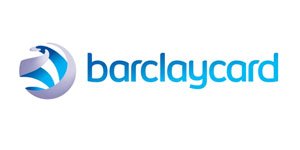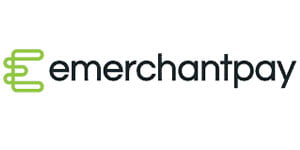Secure Your Finances with the Best Merchant Account UK
We only deal with the best-in-class merchant account providers
Choosing a merchant account UK provider can be a tricky decision, so it’s important to weigh the pros and cons of each option before making your final decision.
Like all business operations, merchant accounts are a big part of your business. A trustworthy provider can help you accept payments and expand your business’s offerings to customers; however, a variety of companies offer these services, and not all are equal.






What is a merchant account?
You need to set up a merchant account to receive payments via credit or debit cards. This type of account holds the funds received from your customers’ card transactions during the payment processing stage before they are ultimately transferred to your business bank account.
It’s important to understand that a merchant account differs from a regular business bank account. While a business account allows you to withdraw money for various expenses related to your business, you cannot make withdrawals from a merchant account as it serves purely as an intermediary account.
A merchant account typically involves fees and often provides additional services such as online account reporting, PCI compliance, and check processing. These extra services may vary depending on the specific provider you choose for your merchant account.
To set up a merchant account, a business typically needs to provide certain information and documentation, such as proof of identity, proof of business registration, and financial statements. In addition, the bank or payment processor may also require the business to undergo a credit check.
Once the merchant account is set up, the business can start accepting customer payments using various electronic payment methods.
How does a merchant account work?
- MERCHANT
When a customer buys a product or service from you, they pay using their debit or credit card through a card reader. The card reader sends the card details to your bank account (the acquiring bank), which holds the merchant account. - ACQUIRER
The acquiring bank then forwards the information to the relevant card association (such as Visa, Mastercard, Amex, Apple Pay or Google Pay) used for the transaction. - PAYMENT NETWORK
The card association, in turn, passes on the information to the customer’s bank (the issuing bank) to check if sufficient funds are available for the transaction. - ISSUER
If the funds are available, the issuing bank signals to the card association, confirming that the transaction can proceed. This information is then relayed to the acquiring bank and subsequently to the card reader, which displays a message indicating the transaction has been approved.

What our customers say
When choosing a merchant service provider, you want someone you can trust. What better proof than seeing what customers have to say?




Do you want to switch your merchant account?
At 1st Choice Card Payments, we get many queries from business owners who want to choose or change their merchant service provider. Although most of these queries relate to poor service from their current provider, others want to find the most affordable solution.
accoun
High/Multiple Fees
Some merchant account providers may charge high fees, such as transaction fees, monthly fees, or setup fees. These can add up quickly and eat into a small business’s profits, so switching to a provider with lower fees could save money in the long run.
Limited Features
Some account providers may only offer basic features such as credit and debit card processing with a card machine, while others may offer additional services such as online payments, recurring billing, and fraud detection. For small businesses looking to expand their offerings, switching to a provider with more advanced features may be beneficial.
Poor Customer Service
Merchant account providers are responsible for maintaining and troubleshooting the technology that enables payments. A business may have a poor experience with a merchant account provider in terms of customer service or technical support, if that’s the case, switching to a provider with a better reputation for customer service will be beneficial.
PCI DSS Compliance requirement
If the business is growing, there may be new requirements for compliance to Payment Card Industry Data Security Standards (PCI DSS). Some merchant account providers may be better equipped to help with these requirements than others, so switching to a provider that can help with compliance may be necessary.
See these on your bill?
A minefield of hidden charges can cost businesses money. We help you find the best card payment provider for you and your business.
Many customers ask how we can explain fees in more detail, reduce charges or remove unnecessary fees.
Some of the following fees/charges have been highlighted:
- PCI Compliance, Non-Compliance and Management Fees
- Authorisation Fees
- Minimum Monthly
- Pence per Transactions
- Setup & Exit Fees
- Paper Statement Fees and Reporting Fees
- Chargeback Fee
We may even be able to help you get out of your current contract. We’ll also negotiate with the card payment company on your behalf, so that you can get the best possible deal.

Well, we know we can do better with our Merchant Account!
If you have been having any of the above issues we can help, We have experienced individuals that have been working with leading merchant accounts since 2010 and we have helped hundreds of businesses get the best deal for their account.
At 1st Choice Card Payments, we work with the best-in-class merchant account providers and friendly staff to help you start accepting credit cards in-store in no time.
We offer a wide range of payment options to meet the needs of your business. From traditional credit and debit card payments to payment gateways, we have you covered. With our easy integration options, you can start accepting payments in no time.





Apply Today
Fill out our form, and we will get back to you as soon as possible.

